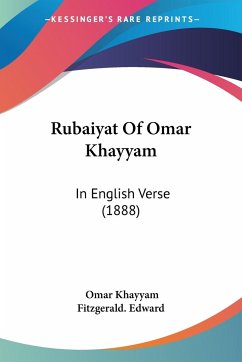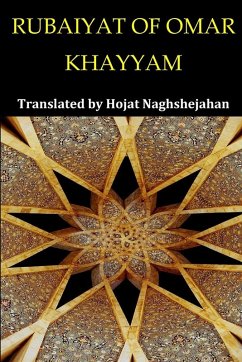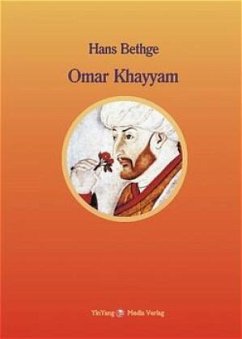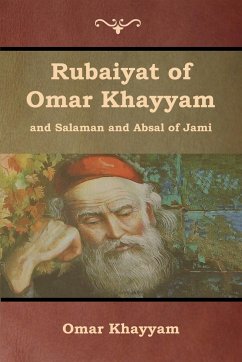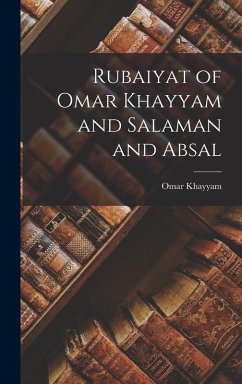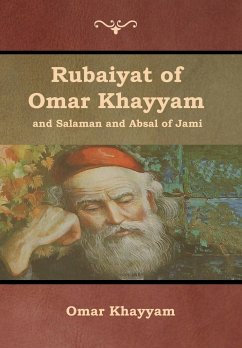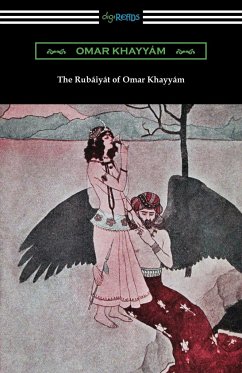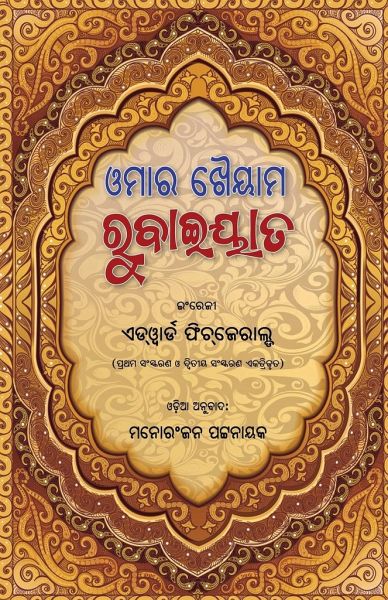
Omar Khayyam Rubaiyat
Versandkostenfrei!
Versandfertig in 1-2 Wochen
17,99 €
inkl. MwSt.

PAYBACK Punkte
9 °P sammeln!
Rubáiyát of Omar Khayyám is the title that Edward FitzGerald gave to his 1859 translation from Persian to English of a selection of quatrains (rub¿¿iy¿t) attributed to Omar Khayyam (1048-1131), dubbed "the Astronomer-Poet of Persia". ¿¿FitzGerald's work has been published in several hundred editions and has inspired similar translation efforts in English, Hindi and in many other languages. Manoranjan Pattanayak's translation in Odia would provide a pleasant reading to the Odia poetry lovers.





